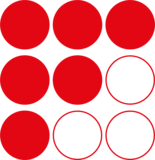Who can become a FundAction activist?
FundAction is an experiment in participatory grantmaking for which we are looking for people who are not afraid to take action and who drive positive social change in and beyond Europe.
FundAction is open to accept:
- emerging and experienced activists
- professionals and volunteers
- who are actively involved in progressive social movements
- at the grassroots level and/or in an organising capacity
- in a networking, interlinking or resource capacity
- at a personal level (it doesn’t matter where you actually work)
FundAction members act as individuals on the platform, not as representatives of an organisation/movement/platform. But what does it mean?
- If for example you work for an NGO or political party, you can still be a FundAction member and seek funding for the grassroots group or social movement that you are engaged with as a private individual.
- But it’s not enough to just work for a foundation, NGO or political party. To join FundAction, you should be actively engaged in it's activities at an individual level.
To join us in this collective experiment in participatory grantmaking, every member must:
- Subscribe to FundAction's values charter that can be downloaded here
- Be motivated and have the time to actively contribute to creating a counterexample to traditional philanthropy (yes, this means reading and discussing others' grant applications beyond your own)
- Trust in the process and FundAction's potential to be a learning tool for all of us
Other limiting factors
Please be aware that, currently, members need to have a sufficient level of English in order to be able to participate in discussions, vote on proposals and apply for a grant - but you don’t need to be perfectly fluent.
Finally, currently we cannot fund non-charitable entities or individuals. While we are working hard to address this challenge, members who do not have access to a charitable organisation as their fiscal sponsor (i.e. can accept a grant in their place), are currently unable to apply for a grant. However, they could join to comment and vote on others' proposals.




